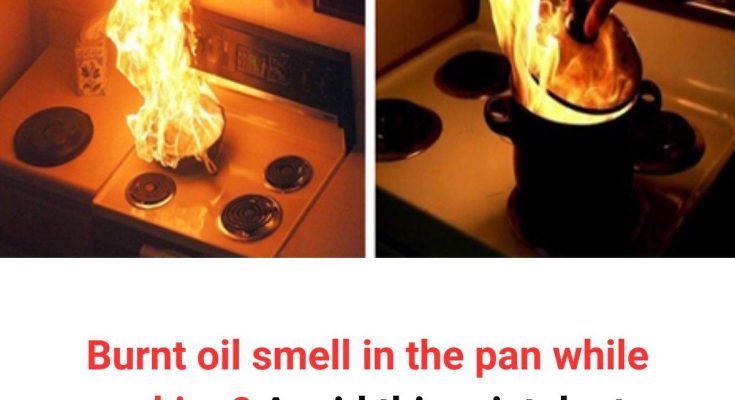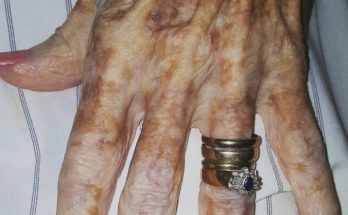Burnt Oil Smell in the Pan While Cooking? Avoid This Mistake to Prevent Disaster
Never pour water into hot oil—this is a critical rule in the kitchen. Why?
Many people, when smelling burnt oil in the pan, instinctively pour water into the hot oil to cool it down. The result? A dangerous fireball erupts, with flames shooting several meters high, increasing the risk of burns, explosions, and severe accidents.
Most kitchen fires start from overheating cooking oil or fat, which can ignite if left on the stove too long. Attempting to extinguish such fires with water only worsens the situation dramatically.
Why Adding Water to Hot Oil Is Dangerous
The boiling point of water is 100°C, while cooking oil typically boils at around 300°C. When water is poured into a pan of hot oil, it sinks to the bottom due to its higher density. The water instantly vaporizes, creating steam and causing the oil to spray out. This oil mist mixes with air, forming a highly flammable mixture, which can ignite and create a massive flare-up.
The flash point of common cooking oils is approximately 330°C, and the significant temperature difference between water and oil exacerbates the danger. As the water turns into steam, it rapidly expands in volume and increases pressure, causing the liquid mixture to erupt violently and fling hot oil everywhere, posing a serious hazard. What to Do in Case of a Kitchen Fire
If a fire starts on your stove, stay calm and follow these steps to extinguish the flames and ensure safety:
Turn Off the Heat
If it’s safe to do so, turn off the stove immediately. Do not attempt to move the burning pan, as this can spread the fire or cause hot oil to splash, leading to burns or igniting nearby objects.
Cover the Pan with a Metal Lid
For small fires contained within a pan, use a metal lid to cover the pan. This deprives the fire of oxygen, causing it to extinguish naturally. Avoid using glass, ceramic, or plastic lids, as they may shatter or catch fire.
Use Salt or Baking Soda
Throwing a generous amount of salt or baking soda onto the fire can help extinguish it. Be cautious not to confuse baking soda with baking powder, as the latter can worsen the fire.
Do Not Use Water
Never pour water on a grease fire, as water does not mix with oil. Water will only cause the fire to spread further and become more intense.
Evacuate if Necessary
If the fire is uncontrollable or spreading rapidly, evacuate the kitchen immediately. Notify others and call the fire department for professional assistance. Fires can escalate in mere minutes, so prioritize safety over attempts to extinguish it yourself.
By understanding these risks and responding appropriately, you can prevent kitchen fires from turning into serious accidents. Always prioritize safety and take necessary precautions when handling hot oil or grease in the kitchen.



